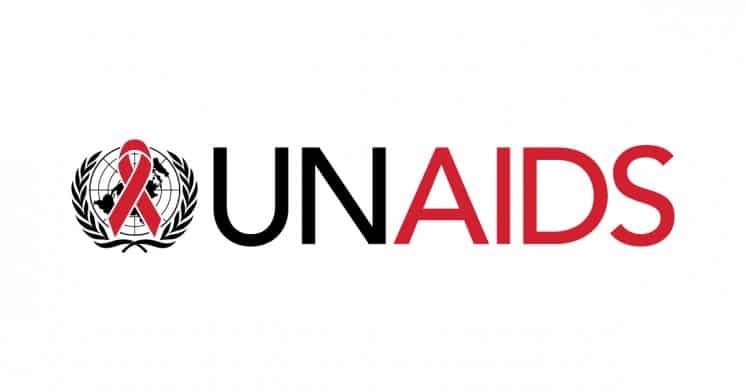When people talk about college education, they always mention “Bachelor’s Degree.” Therefore, we don’t expect the term to be alien to you, but you may really want to know exactly what a bachelor’s degree is in its entirety. You may need answers to questions like What is the meaning of a bachelor’s degree? What are the types of bachelor’s degrees? How much does a bachelor’s degree cost?
The World Scholarship Forum team has put down necessary information on Bachelor’s Degree. This information ranges from but not limited to What is a Bachelor’s Degree, Types of Bachelor Degrees, Bachelor degree meaning, Bachelor Degree list, online bachelor’s degree.
A bachelor’s degree is a post-secondary level of study, typically it normally requires four years of full-time study to finish your Bachelor’s Degree. In those four years, you are going to complete 120-semester credits or just around 40 college courses. If your college employs a quarter platform instead of the semester system, you will want to complete at least 180 quarter credits to earn an accredited bachelor Program.
A bachelor’s degree is a post-secondary undergraduate program. Historically, the term “college degree” means a bachelor’s or conventional four-year degree. They are also sometimes referred to as baccalaureate degrees. Regionally accredited liberal arts colleges grant the majority of the bachelor degrees in the USA
Liberal arts classes are necessary for all sorts of bachelor degrees. Generally, a lot more than fifty percent bachelor’s degree is made of general education or liberal arts classes in areas like English, critical thinking, psychology, mathematics, and history.
Normally only 30 to 36 credits–10 to 12 classes –will probably soon be on your major area of study.
The bachelor’s degree is still the standard for entrance to many professional careers as earning it may be the ticket to a more promising career.
Generally, you can’t attend a professional graduate school in law, medicine or teacher education if you don’t possess a bachelor’s degree. This usually means that you may always require it before going for a master’s program to open the door to even more career opportunities.
Interested in pursuing a bachelor’s degree? These schools give an exceptional number of alternatives, a lot that can be cheap, flexible and/or accelerated.
- The Western Governors University of Utah is a competency-based university, founded by the governors of 19 western states. You get college credits by demonstrating your own understanding of”proficiency” in specific niche matters.
- Capella University was approved by The U.S. Department of Education to offer an innovative “FlexPath” direct-assessment set of programs. Capella’s FlexPath programs give the capacity to considerably reduce the cost of a degree accelerate the time required for degree completion, and better align learning to the needs of the student
- Southern New Hampshire University is transfer-friendly, offers accelerated programs, and provides a dedicated academic advisor and student services designed for the adult learner.
- Grand Canyon University is a premier Christian university offering over 50 bachelor degree programs.
- If you lean towards the creative, Full Sail University offers many bachelor programs across media, entertainment, business, arts, and technology.
- Christian-based Liberty University offers 60+ bachelor degree programs from which to choose and you may be eligible to earn credits for real-world experience and prior professional training.
When Can I Seek For A Bachelor’s Degree?
Whenever you…
- Realize it is needed for your career
- Have earned significantly more than 60-semester college credits or hold a minimum of one associate degree.
- Know a graduate or professional degree will probably likely be required for your career.
Associate vs. Bachelor Degree
The associate’s degree takes two years to complete, While a bachelor’s degree is a 4-year program.
A bachelor’s program intends to round a student not as a possible employee, but as a whole. It equips the graduate with knowledge and skills in a special field that’ll lead them to professional and middle-management jobs. Courses necessary to find a bachelor’s degree comprise general courses in the liberal arts and specific required courses in a major concentration.
Associate degrees, alternatively, prepares graduates to get entry-level work with the basic skills and knowledge needed in a field.
Associate degrees may also allow students to complete general education requirements through a two-year program, for an-after transfer to a four-year degree. Many traditional and online colleges, universities, community colleges, and junior colleges have what are called 2+2 programs.
After a student completes the first two years of their program, they have earned their associate’s degree. A student can continue their education post-associate at a larger university or college through an articulation agreement. This plan can be an easy and affordable bachelor’s degree journey.
Types of Bachelor Degrees
A list of bachelor degrees and their specific majors and concentrations would be almost infinite.
The three most Well-known Kinds of bachelor degrees are:
- Bachelor of Arts (BA degree)
- Bachelor of Science (BS degree)
- Bachelor of Fine Arts (BFA degree)
What is a BA Degree?
A B.A degree generally requires students to choose fewer concentration classes also to concentrate more on researching the arts. These students possess only a bit more freedom with regard to assessing their education to satisfy their career goals and aspirations. The most common majors include English, Art, Theatre, Communications, Modern Languages and Music.
What is a BS Degree?
The BS degree, alternatively, is not as centered on exploration and more targeted to a specific concentration. Bachelor of Science students, more often than not, focus specifically on the field of their major and tend to be more career-focused.
Bachelor’s degrees in the medical field, for example, are more likely to be Bachelor of Science degrees.
Popular majors that make the Bachelor of Science list include:
What is a BFA?
The BFA is just another professional or vocational degree. The objective of a BFA program is for its graduates to go on to become professionals in the creative arts world. This includes dancers, singers, actors, painters, and sculptors, just to name a few. Like the BS degree, the main difference between a BFA and a BA program is the tendency to focus more on their major concentration than on general studies.
TIP: Should you earn a second bachelor’s degree? In most cases, the answer is NO. If you have a bachelor’s in one area—say art history—and are trying to re-tool to work in another area, such as human resources, consider adding a certificate to your resume rather than trying to earn a second bachelor’s degree. By earning a certificate you’ll essentially be adding a new “major” area of study to the general education studies of your original bachelor’s degree.
Accelerated Bachelor Degree Programs
The duration of time that it requires to earn a bachelor’s degree almost certainly depends upon the application you decide to input, and also the college where you register. Options differ from fulltime, and traditional four-year programs to accelerated bachelor’s degree online program which can be completed in just two years. Others may pursue their degree part-time, in which case, it would take longer.
In case you have completed quite a few post-secondary courses, these courses may be approved for transfer credit. This would reduce the time it takes to complete a 4-year bachelor’s degree. If you have an associate’s degree then you may also be eligible to enroll in an accelerated, 90 credit online bachelor’s degree program
Additionally, adult students might have earned prior degree credits that could be moved, or possess completed work-force and attained professional experience which also is eligible for credits that are earned.
Many higher education institutions allow students to test out of courses, through recognized assessments, including the College Level Examination Program (CLEP) and DANTES Credit by Examination.
Finding a distance education course that offers year-round courses may offer another alternative if you have the time commitment and motivation.
Hint:
If time is of the essence and you need a bachelor’s degree as fast as possible, then you should consider attending an online school that has flexible enrollment periods. This allows for students to take their courses on their own time instead of within the confines of a traditional semester or quarter.
Bachelor’s Degree Salary
Concerning academic respect, a BA degree, BFA or BS are all valued equally. Depending on the kind of field into which a person is entering, the cost benefits can vary.
BS degree jobs, like in the field of engineering, often pay more than their BA counterparts in Education or the Arts. Some of the highest paying jobs— like physicians and lawyers— require not only a bachelor’s degree but also additional schooling.
Does a bachelor’s degree guarantee steady employment? No. But it does help your chances significantly. Even when unemployment is high, the unemployment for people with it is lower by at least a few percentage points.
On average, according to a Georgetown report, college graduates (those with a bachelor’s) make 84 percent more over a lifetime than those who have earned only a high school diploma.
According to the National Center for Education Statistics, 72 percent of young adults (aged 25-34) who earn a bachelor’s degree work full time, year-round in 2013. According to that same report, young adults with undergraduate degrees versus young adults with only a high school education made more than twice as much money. The average bachelor’s degree salary is $48,500 compared to $23,900.
Payscale reports salaries for professionals with bachelor’s degrees. Potential early-career earnings include annual salaries of up to:
- Engineering – $101,000
- Computer Science – $69,100
- Dental Hygiene – $65,800
- Mathematics – $58,800
- Nursing – $56,600
- Finance – $55,700
- Management – $54,200.
Average Cost of a Bachelor’s Degree
The tuition varies significantly from school-to-school.
The College Board published a report that stated the median tuition for a full-time student in a single year at a private, not-for-profit four-year institution is about $11,000.
Affordability factors can include but are not limited to public vs. private institutions, the state in which you enroll, available aid, and your status as an in-state or out-of-state residence.
Online bachelor degree programs have set rates that do not base tuition on in-state and out-of-state status. Still, these rates vary widely from school-to-school, and from program-to-program.
Financial aid tremendously affects the total cost of a program For example in the same study, the College Board found that while the average tuition and fees at a public college are about $8,900, the actual net price when factoring in grants and tax credits equaled about $3,100.
Tip:
- Be proactive in your search for the right degree program, and the right school.
- Choose your major according to your interests and career goals, then explore cost rankings and look for the best financial options.
- View GetEducated’s list of the cheapest colleges for an online bachelor’s degree and see if they offer your intended major.
How to Choose a Bachelor’s Degree Program
Before applying, answer these important questions.
- Does this particular degree program fulfill the criteria for my intended profession?
- Will my profession require licensure? Is this degree program approved for licensure?
- Will this bachelor’s degree transfer into a master’s degree if I decide to further my educational goals in the future?
- How much will it cost to obtain my degree?
- Is financial aid available?
- Is coursework semester-based? Year-round? Accelerated?
- Does online mean completely online? Or are there on-campus requirements?
- How much flexibility do I need? Do I prefer asynchronous courses that I complete on my own time, or would I enjoy synchronous classes in which classes meet at set times?
Application requirements vary widely among universities. Most colleges will require that you have a high school diploma or a GED equivalency. You will most likely need to complete an application and may need to submit additional documentation, such as official transcripts, or assessments.
If a four-year program seems daunting, consider a two-year program that will transfer into a bachelor’s program.
TIP: Some careers may require a very specific type of bachelor’s degree. For example, if your goal is to become a public school teacher your state Board of Education will require, at a minimum, a bachelor’s degree in education. That degree will need to include some very specific courses. Check with your state licensing board before enrolling in any bachelor’s program in accounting, education, nursing, counseling, and engineering, in particular.
Show Me an Online Bachelor’s Degree
Basically, a bachelor’s degree looks like an associate degree doubled.
Below is a sample online bachelor’s degree from Western Governors University so you can see the type of curriculum commonly required. Colleges will vary in their exact degree requirements. Compare colleges carefully on the courses they will require you to take to earn your bachelor’s degree in any one major area.
Western Governors University
Bachelor of Science in Business Management
Full-time undergraduate students must be enrolled in at least 12 competency units (CUs) per term. WGU recognizes prior learning and experience to accelerate your degree program, and for this reason, identifies their courses in CUs; with similarities to that of traditional credit units. Below is a traditional route for individuals that enrolled in WGU with no transfer credits.
WE ALSO RECOMMEND
- University of Adelaide Accelerator Scholarships in Australia,
- International IT Scholarship at Seoul National University in South Korea
- The Petchra Pra Jom Klao PhD Scholarship in Thailand
- Undergraduate and Masters Merit Scholarship At East Tennessee State University
- All you Need to Know on How to Study Medicine in Germany
- Bachelor of Commerce Scholarships at La Trobe University in Australia
- Study in the University of Makerere: Admission Requirements, Courses Offered Tuition Fee, Ranking.
- Full Tuition MBA Scholarship for International Students in Sweden,
- Study In UAE: Abu Dhabi University Courses Offered and Tuition Fees
- Top 15+ Scholarships Opportunities for Africans to Study Abroad [Updated]
DISCLOSURE: This post may contain affiliate links, meaning when you click the links and make a purchase, we receive a commission.





Comments are closed.